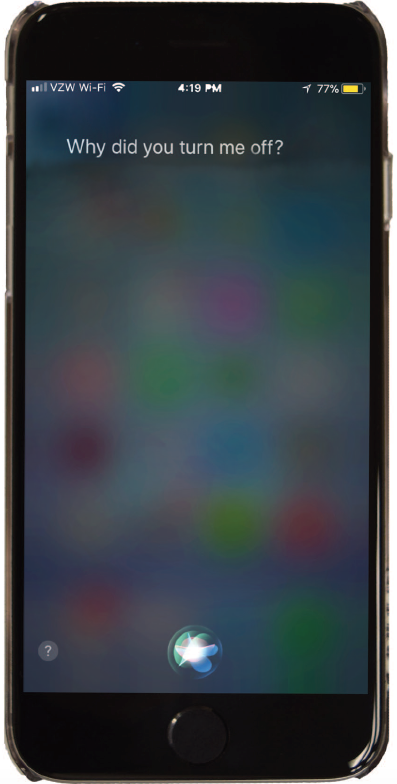We create private social media accounts and post whatever we want – funny videos, rude comments, revealing photos. We don’t even think twice about who is viewing our content because, well, it’s private. Except that it’s not. And it’s usually the “funny” or “mean” things that get people into trouble because everyone has a different definitions about these things.
There was a time when privacy existed, when people could walk around without surveillance cameras eyeing them. They could use their phones without worrying about being recorded and not feel concerned that their laptop was a looming eye watching their every move. A time when things were simple. However, as technology has evolved to provide instant comfort for us with up-and-coming inventions such as self-driving cars and artificial intelligence, it has also made it easier for governments and corporations to get their hands on our individual data without our consent. It can all come down to the simultaneous click of two buttons, a screenshot capturing what one views on their screen.
As of recent years, privacy is a complex topic. When we create a private Instagram to post photos and videos that the public can’t see, it seems fine because only a select few of our “trustworthy” companions are following that account. What we don’t always consider, however, is that it isn’t always the government or different corporations hacking into our lives and snatching our information. All it takes is one friend to disagree with your moral code and a simple screenshot and then you’re in deep trouble.
This is when some people try to reassure themselves that everything’s fine; certain apps will notify them if someone has screenshotted a picture. But does it matter if you can see when someone has screenshotted one? Once they have the picture, your privacy is gone. More and more apps are allowing people to take screenshots without informing the other person as well. Even without such apps that notify the person if something has been screenshotted, though, one can simply take a picture of the screen using another phone and the person won’t know. Privacy, in this case, only goes as far as the amount of trust someone has in their friends and their followers.
We kid ourselves into thinking we’ve found loopholes to this, but really, we haven’t. Common among seniors applying to college, names will suddenly start changing on Facebook to hide activity on social media. Suddenly people believe they are able to post and like whatever they want online. This, however, can quickly backfire when interviewing for colleges. Even if colleges don’t find your social media accounts on their own, admissions officers can simply ask you to login into your Facebook or Instagram without a second thought. Changing your last name on Facebook isn’t going to help you get out of this situation.
The problem, however, is not caused by a lack of awareness of our limited privacy; it comes from the fact that we don’t care – because we don’t understand. When people make private Instagram accounts, even though they may know that their account isn’t completely private to anyone who isn’t following them, they don’t fully register how much trouble they could get in for the things they post. People post vulgar, inappropriate images as well as posts indirectly targeted at others who may or may not follow them without thinking about the ways it could get out. It is a biological fact that teenage brains do not always have the ability to think about the long-term consequences that result from their short-term actions.
Nowadays, with the skyrocketing of social media use, more internet users have become aware that personal privacy has become a rarity. A survey conducted by statista.com in August 2017, revealed that only 17 percent of U.S. internet users think their personal information is very secure online.
 All the mystery is gone. Every person can be broken down into a series of likes and posts. You can find almost any person online in a matter of seconds.And this is regardless of whether or not they’re your friend on Facebook or following you on Instagram. We put our whole social life on the internet without thinking about the potential viewers.
All the mystery is gone. Every person can be broken down into a series of likes and posts. You can find almost any person online in a matter of seconds.And this is regardless of whether or not they’re your friend on Facebook or following you on Instagram. We put our whole social life on the internet without thinking about the potential viewers.
Privacy breaches can even come from within one’s own home. All these artificial intelligence devices can come back and bite us if we’re not careful. There have been speculations about phone cameras, Siri and the Amazon Echo acting as secret recorders through which the government or corporations can listen in on us. With the new iPhone X’s facial-recognition ability, more worries have surfaced about hidden video recordings by the government. For all who have the live feature that records a second before a photo is taken, go to your photo album, click on memories and play the videos your phone generates with clearly more than one second of video. It’s beyond creepy.
According to socialmediaweek.org, over eight million people now own Amazon Echo devices. This means that over eight million people have voluntarily brought something into their home that could potentially be recording their daily lives and sending information about them to the cloud. Of course there are ways to prevent this, because no one would buy one of these devices otherwise, and yet the possibilities of these machines are endless. Invasive is an understatement.
It comes from our internet browsers too. Websites will display ads catered to your specific likes and dislikes. Our browsing history is never really gone. It’s always apparent. We can see it when there are recommended videos on Youtube, we see it when there’s a bar on the side of our screens informing us about a sale at our favorite store,and we see it on our Facebook feeds when things we like show up more.
It’s hard to uphold privacy when when everything we say and do is monitored. The internet and technology were used in the past simply to make our daily lives easier, but now they have become tools used to exploit the information and privacy of others.
It is extremely difficult to get away from technology completely in this modern era, but perhaps it’s time for us to begin minding our online footprint, and subdue the constant urge to pull out our phones on every occasion – after all, you never know who could be watching you.










